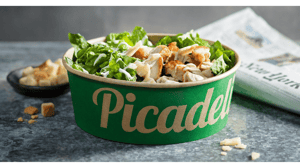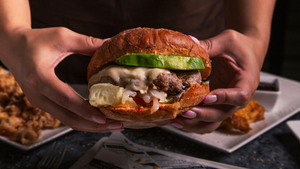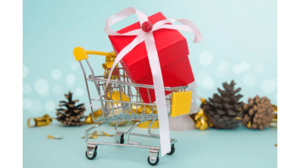HEADS UP
The "responsibility" message being pushed now by brewers is being applauded by some retailers, greeted with skepticism by others.One buyer says he wishes the beer wholesalers would mention their responsibility campaigns when pitching their products."They are sticking with sponsoring local events and promoting the product with discounts, same as they always have done," said Scott Collins, DSD buyer,
October 15, 2001
BARBARA MURRAY
The "responsibility" message being pushed now by brewers is being applauded by some retailers, greeted with skepticism by others.
One buyer says he wishes the beer wholesalers would mention their responsibility campaigns when pitching their products.
"They are sticking with sponsoring local events and promoting the product with discounts, same as they always have done," said Scott Collins, DSD buyer, Minyard Food Stores, Coppell, Texas. "Being responsible has not been a part of the campaign, to this retail establishment, anyway.
"We saw that with the cigarette industry. They were the same way; never brought up what they were doing for the public, until the government mandated it," he said.
The Big Three brewers have been working to make sure the wholesaler's role dovetails with their campaigns for responsibility, said Jeff Becker, president of the Beer Institute, Washington. "It's an evolutionary process. You don't get everything implemented right away. I think, over time, people will notice a demonstrable difference."
Minyard's posts notices on checkstands that tell shoppers its associates check ID on every alcoholic beverage purchase if the consumer looks younger than 27.
It's not only the underage drinker that Miller Brewing, Milwaukee, and others are targeting with their new ads. Nationally, Miller has introduced television advertising and promotions aimed at curbing binge drinking and drunk driving as well. The "We ID" cards seen on many retailers' doors are provided by Miller.
All the big members of The Beer Institute, a trade group, run programs against drunk driving and underage drinking, said a spokeswoman for the association, which is currently chaired by John Bowlin, CEO of Miller Brewing.
"They do a lot of work with colleges, conduct programs for servers of alcohol and, at colleges, we work with Bacchus, a student-driven organization with 800 chapters to promote alternatives to alcohol abuse. We work with government agencies on issues of personal responsibility and healthy choices. We give tips for the university, residence hall advisors, and Greek social chairpersons," said the Beer Institute spokeswoman. Since the end of Prohibition in 1933, the Beer Institute has encouraged its members to market responsibly, the spokeswoman said.
Anheuser-Busch, St. Louis, has a video to encourage families to talk about drinking. The Bud brewer's "We All Make a Difference" campaign includes a commercial featuring a 35-year-old blonde who gets carded in a convenience store. Peter Coors, chairman of Coors Brewing Co., Golden, Colo., says on TV, "We'll wait for your business," and Heineken has a program called Safe Call, which they give to on- and off-premise retailers, to encourage a bartender or patron to call a free number for a cab. Coors also works with 1-800-TAXI-CAB, the provider of Safe Call.
"It's not just feel-good stuff; it came out of the Harvard school of public health," said Bart Alexander, director, industry and corporate issues, for Coor's Brewing Co. Alexander said a number of partnerships have been done with food retailers, such as H-E-B in Texas. "This commitment comes out of a profound belief that responsible selling and marketing of our products is the right way to build our business in the long term," he said.
"There are a lot of challenges supermarkets have today -- illegal underage sales, stings, and being good neighbors in their communities. As suppliers, we think it's important to have conversations with our customers around those issues as well as the issues of promotion and price," Alexander told SN.
One of the first such efforts was with H-E-B, with Coors helping the chain distribute guides to parents on how to have a conversation with their teens, who are new drivers, addressing the issue of alcohol and driving. Signage in other stores has included "21 Means 21," one of Coors' tactics to prevent underage sales.
"The bottom line is we think that it is an important conversation for suppliers and retailers to have. We, as a company, have a requirement that our distributors do talk to retailers about it," Alexander said.
"If it's important to them, they should let the supplier know it," he added. "They don't have to wait for the supplier to bring up the topic. They should ask. It's a two-way street."
Last Christmas and for Super Bowl weekend 2001, Heineken USA partnered with D'Agostino Supermarkets, Larchmont, N.Y., to promote Heineken's prepaid phone cards for cab rides home.
Safe Call kits are in more than 11,000 accounts in 41 states now, two years after the program launched in four markets at first, according to Dan Tearno, vice president, corporate affairs for Heineken USA, White Plains, N.Y., which also imports Amstel Light.
"We have 15,000 kits available now and are rolling it out with a new partner for the taxi piece so that the POS materials can be the same throughout the country," he explained.
He said Heineken has partnered with D'Agostino's four times during holiday periods, using the Safe Call logo in the store circular with a message along the lines of "D'Agostino's and Heineken hope you have a safe holiday season," and giving out the prepaid phone cards as well. "It's a goodwill gesture on their part.
"Utilizing the Safe Call logo at the point of sale allows the retailer to establish the mind-set. It plants the idea that this is a responsible bar, and this is a way to get home if you need to," Tearno said.
"Obviously, we think it's a positive image for the Heineken brand. People like to buy products from companies that they feel are good citizens," he added.
Chuck Beebe, beverage category manager at Brown & Cole, Bellingham, Wash., said he has noticed a shift in emphasis toward responsible consumption by all three major U.S. brewers. "You don't want to be the one NOT doing it," he said.
Retailers have the responsibility of recognizing when a customer has already had too much to drink, and are supposed to refuse them in that case.
Miller's Live Responsibly campaign launched July 4 of this year. The series of national television ads deliver the message with realistic scenarios involving consumers of legal drinking age. In one of the ads, a young man discovers that a night of excessive drinking has led him to make a rash decision: inviting his girlfriend to move in with him.
"You have a social and ethical responsibility when you sell alcohol," said Beebe of Brown & Cole. "It does affect the retailer, in that not over-using the product is in everyone's best interest.
"As retailers, we have a responsibility to the communities that we serve. I would encourage them [the brewers] to continue to conduct these educational campaigns."
About the Author
You May Also Like




